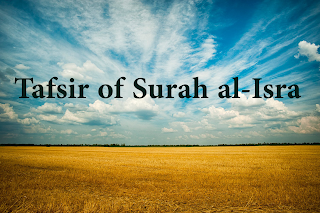Some will say, ‘They were three and their dog was the fourth.’ Others will say, ‘They were five, and their dog was the sixth.’ Their statements were conjectures. And others will say, ‘They were seven, and their dog was the eighth.’ Say, ‘My Lord knows best their number. No one knows about their number but a few.’ Thus, do not argue about them, but superficially, nor ask anyone about them.
[Surah al-Kahf: 22]
Tafsir
The Number of the Young Men of the Cave
People at the time of Messenger Muhammad disputed over the number of the young men of the cave. Some people said that they were three and their dog was the fourth. Others said that they were five and their dog was the sixth. Both parties had no proof supporting their statements. They only made conjectures without having any evidence, which indicates that their conjectures were untrue. Moreover, other people said that the young men of the cave were seven and their dog was the eighth. The Quran does not comment on this opinion, which indicates that it was the correct opinion.
Then the decisive statement about the number of the young men of the cave and information related to their affairs comes.
(Say, ‘My Lord knows best their number. No one knows about their number but a few.’)
O Messenger! Say, ‘My Lord, Allah, knows best the number of the young men of the cave. Allah has not mentioned their number in the Quran. He has commanded us to leave knowledge of any information related to them to Him alone.’
The Quran mentions the most important information about the young men of the story. Moreover, the significance of the story is the most important thing that people should focus on. The people of the cave were young men, who fled from their town to protect their belief in the Oneness of Allah so that the disbelievers would not force them to return to disbelief. They went to a cave, where Allah caused them to sleep for a long time. Thus, they became a striking example.
There are certain issues such as their number, their names, and what was the name of their town, that have no bearing on the matter. Therefore, Allah said, (Thus, do not argue about them, but superficially, nor ask anyone about them.) In other words, do not dispute over their number or any information related to the young men of the cave.
People curiously ask questions about things, such as, when and where the story took place, names and numbers of its characters. They even ask about the name of the dog of the young men of the cave. Such matters are of no bearing to the significance of the story.
We should note that the stories of the Quran do not mention information about the characters for certain reasons. For example, contemplating the story of the young men of the cave shows us that obscuring its characters serves as clarifying means for the significance of the story. That is because if the Quran tells us, for example, where it took place, some people may say, ‘This story is restricted to that place.’ Therefore, Allah obscures the names of the young men of the cave and where the story took place so that the intended lesson can be learned by spreading the story with such description, i.e. it is not restricted to a particular time, place, or a certain group of people. Supporting and following the truth is obligatory in all circumstances and by all people.
(Say, ‘My Lord knows best their number. No one knows about their number but a few.’)
O Messenger! Say to those who disputed over the number of the young men of the cave, ‘Allah knows best their number. If you know something about them, it is based on speculation, while Allah’s knowledge about them is certain.’
Allah confirms that a few people know their number, (No one knows about their number but a few.) However, there is no contradiction between what was stated before it, i.e. Allah knows best their number. That is because the knowledge of a few people who know the number of the young men of the cave is general and speculative, but Allah’s knowledge is certain, detailed, and comprehensive. Moreover, the few people who knew the number of the young men of the cave acquired such knowledge as Allah informed them the matter by revelation, e.g. Messenger Muhammad.
(Thus, do not argue about them, but superficially, nor ask anyone about them.)
O Messenger! The matter of the young men of the cave is as We, Allah, told you. Thus, do not argue about their matter with those who disputed over them except to the extent provided to you in the Quran, and do not ask anyone about their story because what We revealed to you is sufficient.




